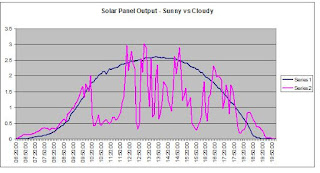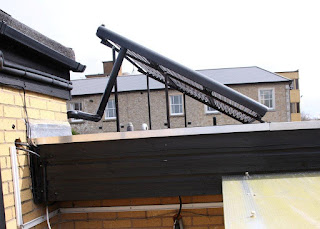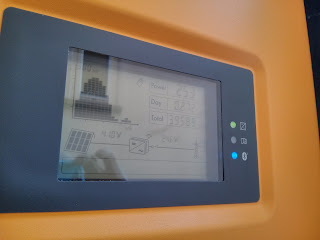How does heat affect the output of PV Solar Panels?
In general PV solar panel efficiency is affected by increased temperatures so hot sunny days can actually generate less electricity which is the opposite to most people's expectations.
 |
| How does heat affect the output of PV Solar Panels? |
Solar panels are tested at 25C and an efficiency factor worked out which is quoted as the "temperature coefficient of power in % per degree C". This shows the amount that the solar PV panels will reduce in efficiency for every degree that the panels are above 25C. Equally it will show the increase in efficiency when the solar panels are below 25C.
For our solar panels this temperature coefficient is -0.54 which means that for every degree over 25C the solar panels will generate 0.54% less electricity. If, for example, the temperature reached 35C then as this is 10C above 25C the efficiency would drop by 10 x 0.54 = 5.4%.
So on a cold sunny day at 25C you may achieve a maximum output from your solar PV array of 20kWh over the day, on a hot day at 35C you would only generate 20 x 95% = 19kWh of electricity.
The heat affect on solar panels has been very effectively shown during April 2013 when the weather has been relatively sunny but exceptionally cold for the time of year and the month has given two new records for daily output. The maximum electricity generated from our solar panels in 2012 was 20.3kWh yet this has already been exceeded on two days during April 2013.
 |
| Graph showing peak of solar pv generation on hot day compared to cold day |










